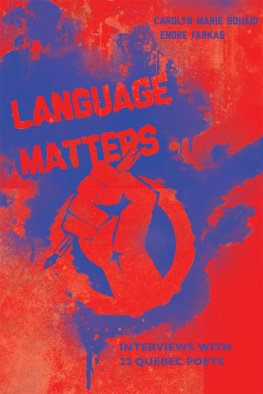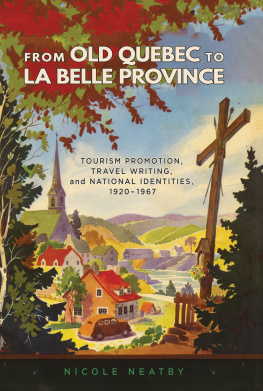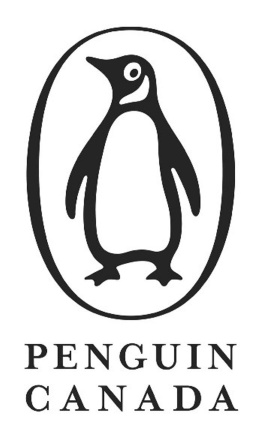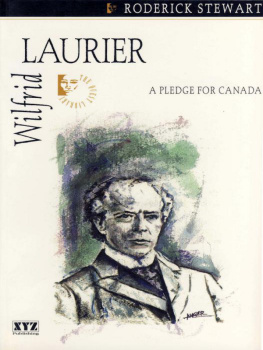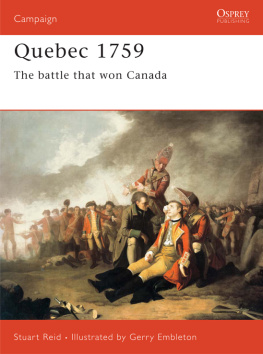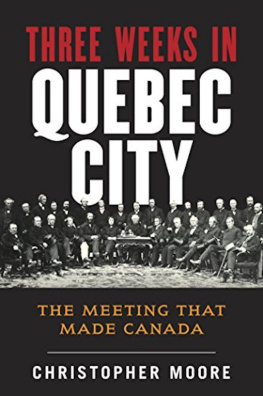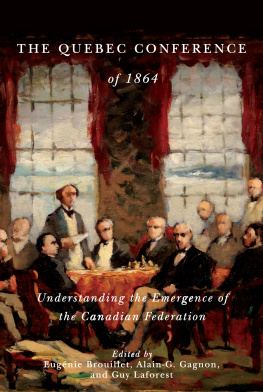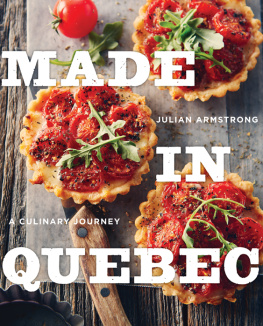All rights reserved. No part of this book may be reproduced, for any reason, by any means, without the permission of the publisher.
Cover design by Doowah Design.
Interior design by Melody Morrissette.
We acknowledge the support of the Canada Council for the Arts and the Manitoba Arts Council for our publishing program.
Language matters : interviews with 22 Quebec poets / Carolyn Marie Souaid & Endre Farkas.
1. Poets, Canadian (English) Qubec (Province) 20th century Interviews. 2. Canadian poetry (English) Qubec (Province) History and criticism. 3. Poetry Authorship. 4. Poetics. 5. Poetry Social aspects. 6. Poetry Political aspects. I. Farkas, Endre, 1948, interviewer (expression), editor of compilation II. Souaid, Carolyn Marie, 1959, interviewer (expression), editor of compilation III. Title.
P.O. Box 206, RPO Corydon, Winnipeg, Manitoba, R3M 3S7
Foreword
Look, he is
the nth Adam taking a green inventory
in world but scarcely uttered, naming, praising,
the flowering fiats in the meadow, the
syllabled fur, stars aspirate, the pollen
whose sweet collusion sounds eternally.
[ ]
And now in imagination he has climbed
another planet, the better to look
with single camera view upon this earth
its total scope, and each afflated tick,
its talk, its trick, its tracklessness and this,
this he would like to write down in a book!
A.M. Klein, from Portrait of the Poet as Landscape
God knows the creative process is a mystery. To make something out of nothing, to see a world in a blank page, to hear imagined people speak, to touch things that arent there, to taste what is not yet baked, to speak volumes or write an image is something to wonder at, something awesome to behold. Yet these are the things that artists do every day. These are the tasks, pleasures and pains that artists, including poets, undertake. Transmitters of acts of the imagination, poets use language to make their unique works of art. But how do they do this?
POETRY PERSISTS BECAUSE IT IS LOW MAINTENANCE ALL YOU NEED IS A REED PEN AND A CLAY TABLET, A BALLPOINT AND A SHEET OF PAPER.
CHARLOTTE HUSSEY
This is one of the many questions we asked Quebecs English-language poets over the four-year lifespan of the online literary magazine that we, along with Elias Letelier, founded on June 24, 2009, Quebecs Fte Nationale. We were curious about their process but we also wondered whether living in Quebec and writing in the language of les autres meant anything aesthetically, socially, culturally and politically. We had a poetic and political agenda. Poetry Quebec , or PQ , was a conscious and deliberate nod (and wink) to Quebecs separatist party, the Parti Qubcois. We wanted through our tongue-in-cheek name and motto, Je me souviens, to signal that Quebecs English-language poets are Quebec poets who were, are and will be here to remember and be remembered. The name and motto were also a manifesto of our engagement.
One thing that differentiates human beings from other creatures is consciousness. Through consciousness, humans are aware of their existence. Yes, philosophers, crackpots and artists may question the reality of this existence, but most seem to agree that humans are aware of the fact that they are aware. Just how aware is another question. But the degree of awareness is secondary to the fact that humans sit around fires, in caves, cafs, classrooms, and at desks long into the night, contemplating it.
Of course, this contemplation brings to light the big questions: Why and how did we come to be? We attempt to answer these and other questions through religion, science and the arts. Over the centuries, we have looked into the entrails of animals; weve looked to the heavens and explored the universe of our imagination. Our unquenchable need to know has led us to develop creative ways of looking and recording.
And for as long as weve had this awareness, we have had the arts. From the earliest cave paintings to the latest in body piercing and tattoos all are evidence of our human attachment to the creative process.
Even those skeptical of the value of the arts government leaders who favour no-nonsense pragmatism but who dole out obscene amounts of money for paintings of prime ministers and re-enactments of the great battles of yesteryear, or big business entrepreneurs who focus on the bottom line but spend billions developing the perfect shade of lipstick do not deny that the arts exist. In evolutionary terms, with respect to human beings, we could call the arts a necessary appendage or scheme, since Darwinian theory posits that all appendages and schemes adopted by creatures are geared toward the survival of the species. The creative process by which we make art is therefore an essential aspect of human existence and survival, and a subject worth investigating.
A POET IS A MINORITY WHEREVER SHE IS.
GILLIAN SZE
Right from its inaugural issue, Poetry Quebec was interested in the creative process of Quebecs English-language poets and how it related to their engagement with private, public, local and global concerns, issues and themes. As editors, we felt that aiming a spotlight on this process through interviews as well as essays, articles, and reviews of their books was important not only for the poets but for the English- and French-language communities of Quebec. The interviews would allow readers to learn more about the poets but also something about themselves and their relationship to language and the creative process. And here in Quebec especially being aware of language is vital. It matters.
Although the first poem written in Canada in one of the colonizing languages, The Pleasant Life in Newfoundland, is claimed by Robert Hayman in 1628, in Newfoundland, scholars agree that real poetic activity in Canada began in Quebec, specifically in Montreal in the early 1800s, with Levi Adams.
WRITING IS ALWAYS A POLITICAL ACT, OF COURSE.
ERN MOURE
A Canadian, according to the scholar Arthur L. Phelps, is one who is increasingly aware of being an American in the continental sense without being American in the national sense ( Literary History of Canada, Volume One, 139). And this sense of being a Canadian English began in Lower Canada with Adams. His social observations, his description of French Canadians, places him in a tradition continued through A.M. Klein. Adamss book-length poem Jean Baptiste was published in Montreal in 1825: The place of publication is worth noting since a Canadian imprint was rare, notes Phelps ( LHC , 141-2). His poem was warmly reviewed in Canadian Review and Canadian Magazine , both Montreal-based literary magazines. Poetic activity was beginning to surface with this and subsequent publications such as The Quebec Gazette (Quebec City) and Montreals Literary Garland , which also ran poems and reviews.
The first wave of Modernism in poetry in Canada also began in Montreal with the publication of the first issue of The McGill Fortnightly Review on November 21, 1925. Two of the prime movers behind its founding and editing were A.J.M. Smith and F.R. Scott, two graduate students attending McGill University (Ken Norris , The Little Magazine in Canada 192580 ). Another important member of this Montreal group to emerge was A.M. Klein, probably the most urban and cosmopolitan of them. As the theoretician among them, Smith defined, most clearly, his view of the purpose and quality of the modern in his article Contemporary Poetry:

